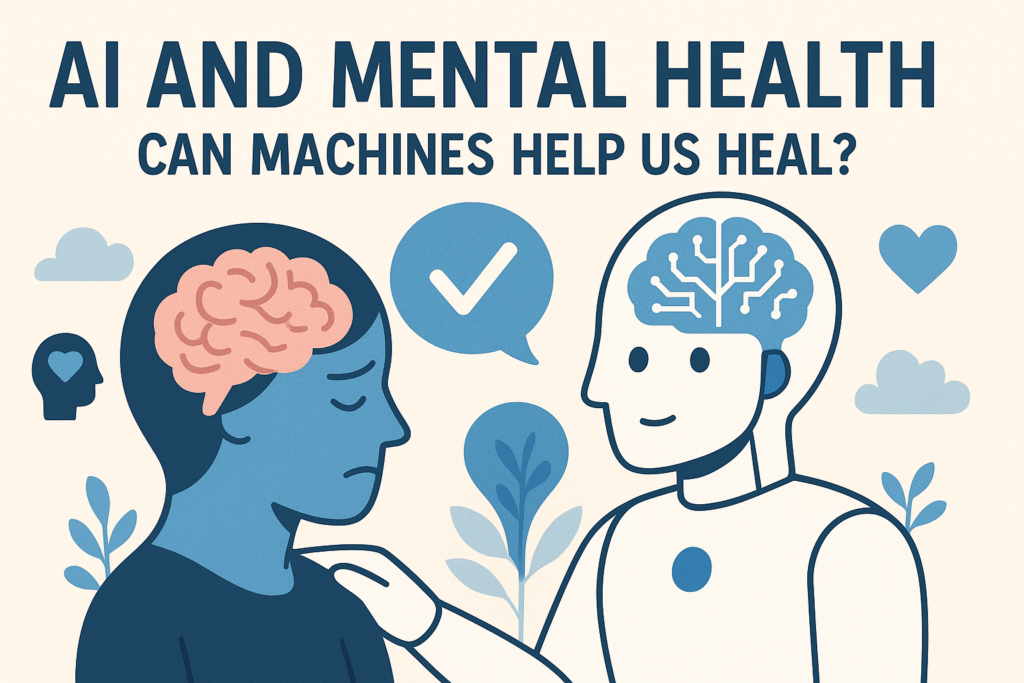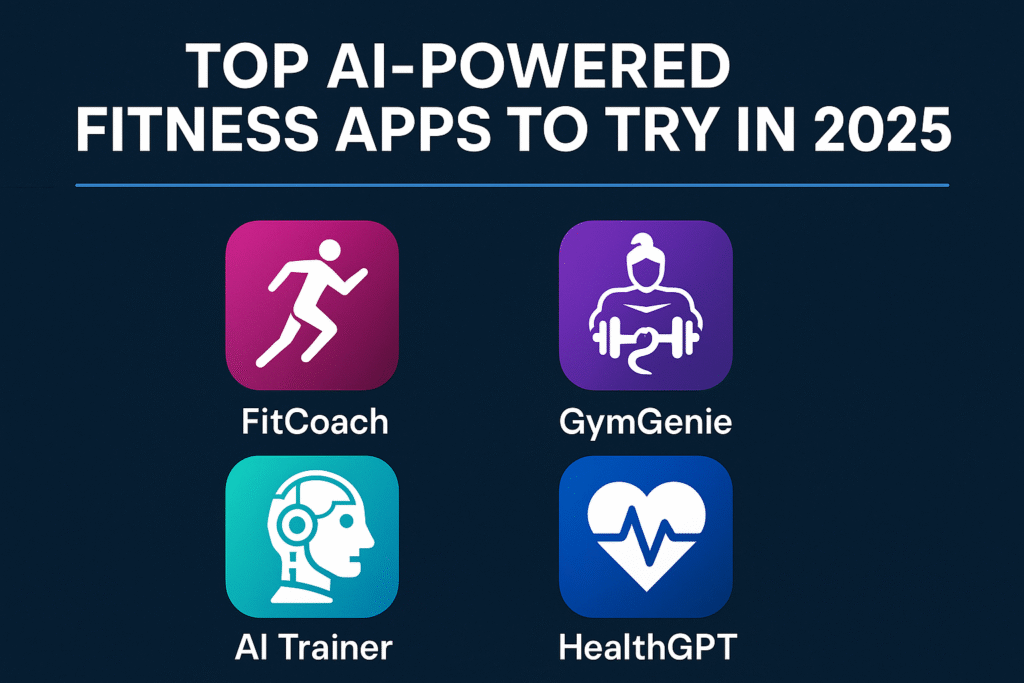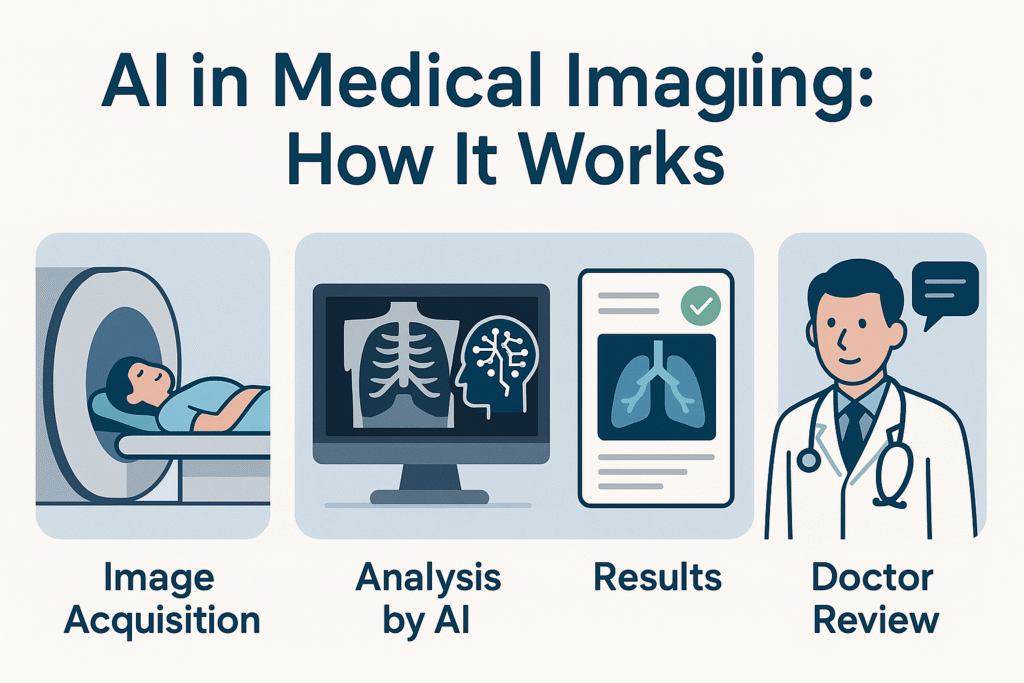🧠 AI and Mental Health: Can Machines Help Us Heal? (2025 Deep Dive)
Explore how AI is being used in mental health support in 2025—from chatbots to predictive diagnosis. Can machines really help us heal? Find out at AiBlogQuest.com.
🤖 Introduction: The Intersection of AI and Emotional Wellbeing
Mental health disorders affect 1 in 4 people globally, and traditional support systems often fall short. But can artificial intelligence step in to bridge the gap?
At AiBlogQuest.com, we explore the rapidly growing field of AI and mental health—how machines are being trained to listen, learn, and even heal.
💡 How AI Is Being Used in Mental Health Today
AI is already supporting mental health through:
-
Chatbots and virtual therapists
-
Mood and behavior tracking apps
-
Speech and text analysis for early detection
-
Crisis prediction and intervention systems
Let’s explore the most impactful innovations reshaping mental healthcare in 2025.
🔍 6 Ways AI Is Transforming Mental Health Support
1. 💬 AI-Powered Mental Health Chatbots
Tools like Woebot, Wysa, and Tess provide 24/7 conversational therapy using cognitive behavioral techniques (CBT).
They help users:
-
Manage anxiety and depression
-
Talk through feelings privately
-
Build healthy coping skills
✅ Scalable, accessible, and stigma-free support.
2. 🔊 Voice & Speech Analysis for Depression Detection
AI models can analyze:
-
Voice tone
-
Speaking rate
-
Pauses and hesitations
These indicators can reveal early signs of depression, PTSD, or stress.
✅ Used in tools like Ellipsis Health and Sonde Health.
3. 📱 Emotion-Tracking Apps
AI-driven mental wellness apps track:
-
Sleep patterns
-
Social media use
-
Facial expressions (via selfies)
✅ Apps like Youper and Mindstrong use this data to detect mood disorders and recommend personalized interventions.
4. 🧠 Predictive Mental Health Algorithms
AI analyzes:
-
Electronic health records
-
Therapy session transcripts
-
Patient surveys
It helps identify individuals at risk of suicide, burnout, or relapse—before symptoms escalate.
✅ Healthcare systems are adopting these for proactive mental health care.
5. 👥 Virtual Mental Health Assistants
AI avatars provide:
-
Guided meditations
-
Mindfulness sessions
-
Daily emotional check-ins
✅ Example: Replika AI offers personalized emotional companionship.
6. 🏥 AI Support for Therapists & Psychiatrists
AI tools assist professionals by:
-
Summarizing patient notes
-
Suggesting treatment paths
-
Flagging critical mood changes
✅ Enhances accuracy while reducing clinician workload.
🧩 Limitations and Ethical Concerns
Despite the promise, AI in mental health must be handled responsibly. Concerns include:
-
Data privacy and HIPAA compliance
-
Lack of empathy in bots
-
Over-reliance on machines vs human care
AI should support, not replace, professional therapy.
🔗 Useful Links
🌐 Resources
❓ FAQ – AI and Mental Health
Q1: Can AI replace therapists?
No. AI can assist and support, but human therapists provide empathy, context, and complex judgment that machines can’t replicate.
Q2: Is AI mental health support safe?
Yes, when backed by ethical design and data protection, AI tools can be extremely helpful—especially for early intervention and daily support.
Q3: Are AI mental health tools free?
Many apps offer free basic versions with optional upgrades. Tools like Wysa and Woebot have free chat-based CBT features.
🏁 Final Thoughts
AI and mental health may seem like an odd pairing, but it’s proving to be a powerful alliance. From chatbots that listen to algorithms that save lives, AI is making mental health care more accessible, proactive, and personalized.
Follow AiBlogQuest.com for the latest updates on how technology is reshaping emotional wellness for good.
🏷️ Tags:
AI and Mental Health, AI Therapy Chatbots, Mental Health Technology, Emotional AI, AI Mood Tracking, AiBlogQuest



